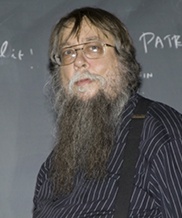Computer Go
Interactive media and games increasingly pervade and shape our society. In addition to their dominant roles in entertainment, videogames play growing roles in education, arts, science and health. These talks bring together a diverse set of experts to provide interdisciplinary perspectives on these media regarding their history, technologies, scholarly research, industry, artistic value and potential future. As the speakers and title suggest, the series also provides a topical lens for the diverse aspects of our lives.
Join us every TUESDAY From March 29th until May 31st from 12pm-1pm in the Braun Lecture Hall inside of the Seeley G. Mudd Chemistry Building.
Can’t make it to the talk, but have a question for Daniel? Submit your question HERE and it will be asked. By submitting your question, you’re allowing mediaX to use and record your submission.
Also listed as one-unit course BIOE196. For more information contact Ingmar@stanford.edu
Never Miss An Event; Join Our Email Community
Presenter

Daniel Bump, Computer Go. Go is an ancient game that proved more difficult for computers to play than Chess or Checkers. I will consider the problem of Go programming, why it is difficult, and look at GNU Go's algorithms. Then we will consider two subsequent subject developments, namely Monte Carlo methods and Deep Learning. Finally, we will review a few moves from the recent AlphaGo-Lee Sedol match.
Daniel Bump is a professor of mathematics at Stanford. His research is in representation theory and automorphic forms. He is a co-author of GNU Go, which in the late 1990's became the first free Go program of reasonable strength.